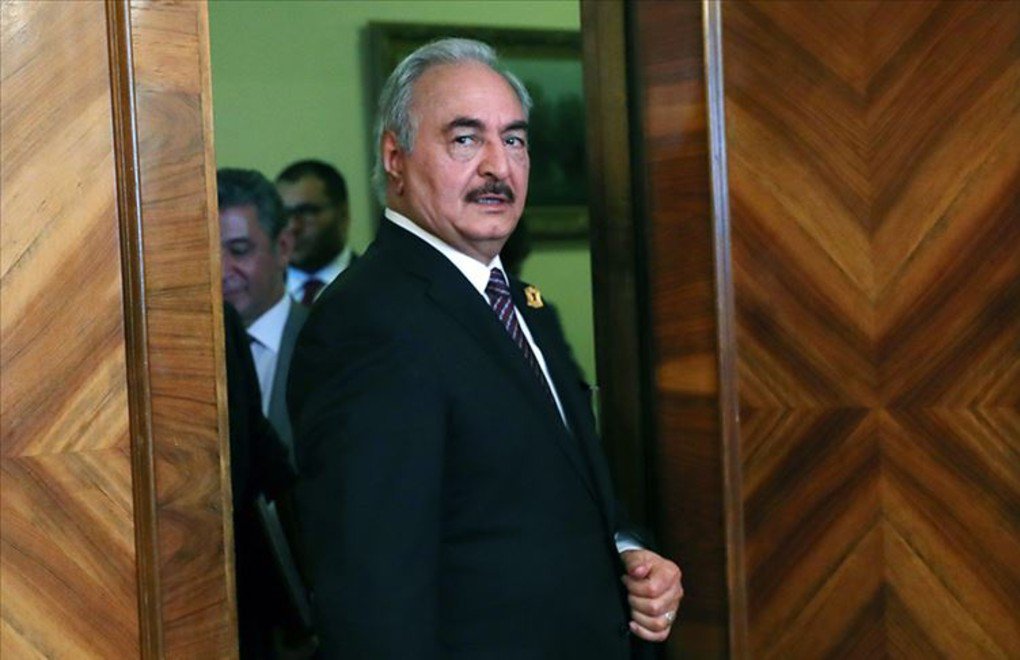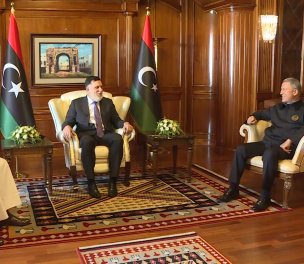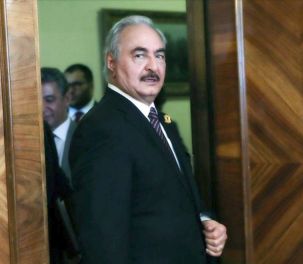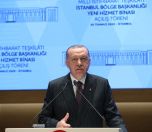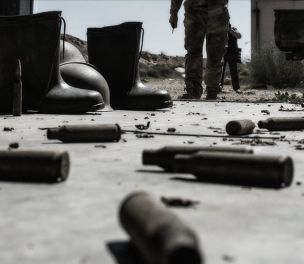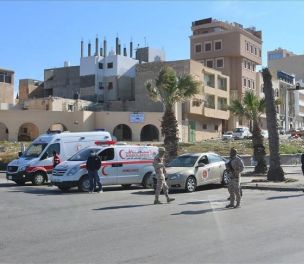* Photo: Anadolu Agency (AA)
Click to read the article in Turkish
Ahmed al-Mismari, the Spokesperson for the Libyan National Army (LNA) of Khalifa Haftar, has made a statement about the ceasefire declared by Libya's UN-recognized Government of National Accord (GNA) on August 20. The Spokesperson has defined the move as "a strategy of deception."
In a press statement yesterday (August 23), al-Mismari has claimed that the ceasefire declared by GNA leader Fayez al-Sarraj is "media marketing."
'They are planning an attack'
On the other side, the Spokesperson has also said that according to the intelligence received by Haftar's militia, the Tripoli-based GNA still intends to "attack their forces in the regions of Sirte and Jufra."
Spokesperson Al-Mismari has also alleged that "in the last 24 hours, they have observed that Turkish warships and frigates have been heading towards Sirte." Arguing that these were "in a position of war," al-Mismari has declared that the LNA "is ready for any attack."
Since the ousting of Muammar Gaddafi in 2011, two seats of power have emerged in Libya: One in eastern Libya, the Libyan National Army (LNA) led by Khalifa Haftar, and the other in Tripoli, which enjoys UN and international recognition, the Government of National Accord (GNA).
EU has "welcomed" the ceasefire
High Representative of the European Union (EU) for Foreign Affairs and Security Policy and Vice President of the European Commission Josep Borrell also released a statement about the ceasefire yesterday. Welcoming the decision, the statement briefly read:
"This is a constructive first step forward, which demonstrates the determination of the Libyan leaders to overcome the current stalemate and creates a new hope for a common ground towards a peaceful political solution to the longstanding Libyan crisis and the termination of all foreign interference throughout the country.
"We fully support the agreement around the principles to immediately cease all military activities across Libya, requiring the departure of all foreign fighters and mercenaries present in Libya, and resume the negotiating process in the framework of the UN-led Berlin process.
"We now urge all the Libyan parties, and all those supporting them in any form, to translate these principles into concrete actions on the ground leading to a permanent ceasefire, as part of the discussions within the 5+5 joint military committee and to relaunch the political process.
"We took note of the announcements regarding the lifting of the blockade on oil infrastructure. We now call for these announcements to be followed by concrete developments in terms of a full resumption at full capacity throughout the country in the interest of all the Libyan people, along with the implementation of economic reforms with a view to agreeing on a fair and transparent distribution mechanism for oil revenues and to enhancing the governance of Libyan economic and financial institutions.
"The EU reiterates its full support to the UN and Libyans in implementing these principles. We reaffirm our commitment to the Libyan people in their efforts to establish a sovereign, united, stable and prosperous country."
Declaration of ceasefire
Libya's UN-recognized GNA declared a ceasefire across the country on August 20, calling for demilitarizing the city of Sirte. It also called for parliamentary and presidential elections to be held in March, and for an end to an oil blockade imposed by rival forces since earlier this year.
GNA leader al-Sarraj "issued instructions to all military forces to immediately cease fire and all combat operations in all Libyan territories."
Briefly on the situation in LibyaSince the ousting of Muammar Gaddafi in 2011, two seats of power have emerged in Libya: One in eastern Libya, the Libyan National Army (LNA) led by Khalifa Haftar, and the other in Tripoli, which enjoys UN and international recognition, the Government of National Accord (GNA). The government and western parts of the country have been under attack by Haftar's forces since April 2019, with over 1,000 killed. On November 27, 2019, Ankara and Tripoli reached two separate memorandums of understanding (MoU), one on military cooperation and the other on maritime boundaries of countries in the Eastern Mediterranean. Following the military cooperation deal, President and ruling AKP Chair Recep Tayyip Erdoğan said Ankara might consider sending troops to Libya if the Tripoli government made such a request. Having convened to discuss a motion on military deployment to Libya in early January 2020, the General Assembly of the Parliament of Turkey has passed the motion by a vote of 325 against 184. In the statement issued after the meeting of the National Security Council on June 2, it was announced that "the military consultancy services provided by Turkey to Libya's United Nations (UN)-recognized legitimate government, which endeavors to protect Libya's political unity and territorial integrity and to ensure peace and tranquility across the country, will be continued." "The international community is called on to take a principled stance against shady groups, which usurp the will of Libyan people and target Libya's legitimate government," the statement read further. |
(PT/SD)




